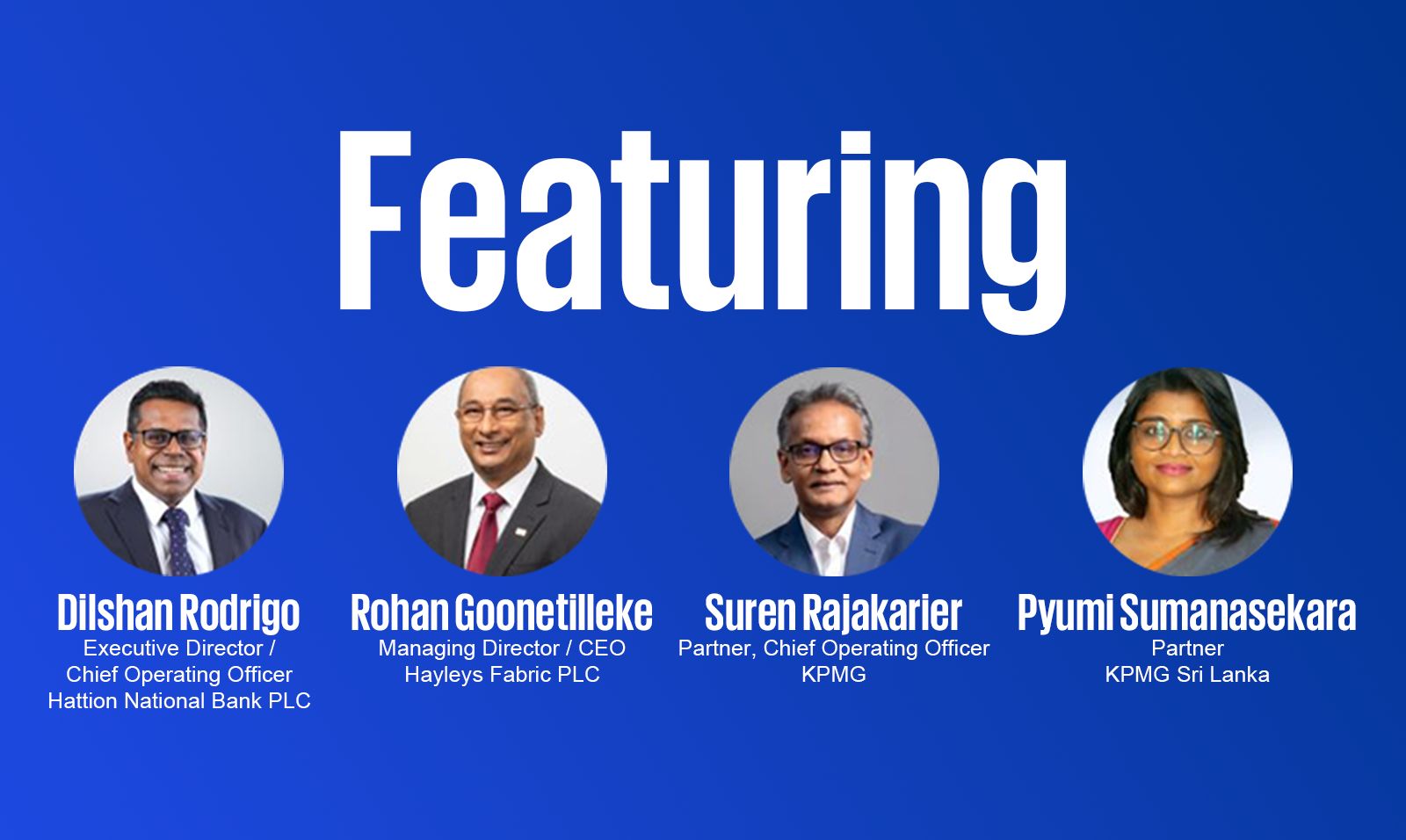KPMG Hosts 26th Audit Committee Forum to discuss the Impact of the DDO and ESG on the Future
Understanding the impacts of DDO & ESG on future trends
The session in August 2023, discussed the impact of Domestic Debt Optimization (DDO) program on companies and how Audit Committees should respond to those challenges. Similarly, the session was also designed to highlight the ESG trends impacting local companies in order to prepare audit committees to address the risks arising therefrom. The presentations focused on helping BACs create value to the companies and make them future ready.
The session was led and moderated by Suren Rajakarier, Partner and Chief Operating Officer at KPMG in Sri Lanka and Maldives, with Pyumi Sumanasekera a Partner leading ESG at KPMG presenting her views on the future trends on ESG impacting corporates in Sri Lanka. The panel included Dilshan Rodrigo, Executive Director/COO at Hatton National Bank PLC and Rohan Gooneratne, Managing Director/CEO at Hayleys Fabric PLC.

In his presentation Suren Rajakarier highlighted the indicative terms of Sri Lanka’s DDO program as announced by the government. The aim of this was to restore public debt sustainability and macroeconomic stability. It was noted, the banks and financial institutions with significant exposure to government bills and bonds are expected to benefit from the DDO, however, its impact on interest rates would have impact on asset valuations by corporates. He mentioned that the Audit committee should be aware of certain impact on financial statements as highlighted below:
- Fair value measurement of financial assets and financial liabilities is frequently based on discounted cash flows, and therefore could be directly affected by rising interest rates. Impairment tests for goodwill, intangible assets, items of property, plant and equipment, and right-of-use assets require companies to determine the recoverable amount of the individual asset, or the cash-generating unit (CGU) to which it belongs. Impairment losses arise when the carrying amount of the asset (or CGU) exceeds its recoverable amount. The recoverable amount is the higher of fair value less costs of disposal (FVLCD) and value in use (VIU).
- ROU impact is not major- Prevailing interest rates since the adoption of SLFRS 16 in 2019 have been low. Therefore, for those companies that adopted SLFRS 16 using a modified retrospective approach, for remeasurements of existing lease liabilities that require a revised discount rate and new leases, rising interest rates will drive higher discount rates, lower lease liabilities and lower corresponding right-of-use assets. Therefore, in the long run, lease expenses could shift from amortization to interest expense. Or in a lower interest regime it would have the opposite effect.
- Additionally, estimates of future cash flows and the discount rate reflect consistent assumptions about price increases attributable to general inflation. Therefore, if the discount rate includes the effect of price increases attributable to general inflation, future cash flows are estimated in nominal terms. If the discount rate excludes the effect of price increases attributable to general inflation, future cash flows are estimated in real terms.
Dilshan Rodrigo explained the impact of the DDO on some of the economic factors that affect businesses in the non-finance sector companies, to highlight possible future trends, due to the predicted trajectory of low interest and low inflation. He explained, DDO as a key component of Sri Lanka’s IMF program which aimed to restore macroeconomic stability and safeguard our banking system, helping in the planned economic recovery.
Pyumi Sumanasekera in her presentation showcased the new requirements for ESG globally and in Sri Lanka and also articulated the new reporting requirements that’ll impact a segment of listed companies. She also spoke of the importance of the audit committees understanding the new requirements and learn to overcome the risks posed by climate/decarbonization risks.
Rohan Gooneratne shared many practical aspects of how his company has integrated good ESG related practices into their company and the benefits accruing to them. It was clear that the benefits outweigh the costs, which is a concern for many business leaders.
The Forum concluded with appreciation from the members for the clarification on the impact of DDO and also with a greater understanding of what they need to do to integrate an ESG framework to benefit from such new trends.